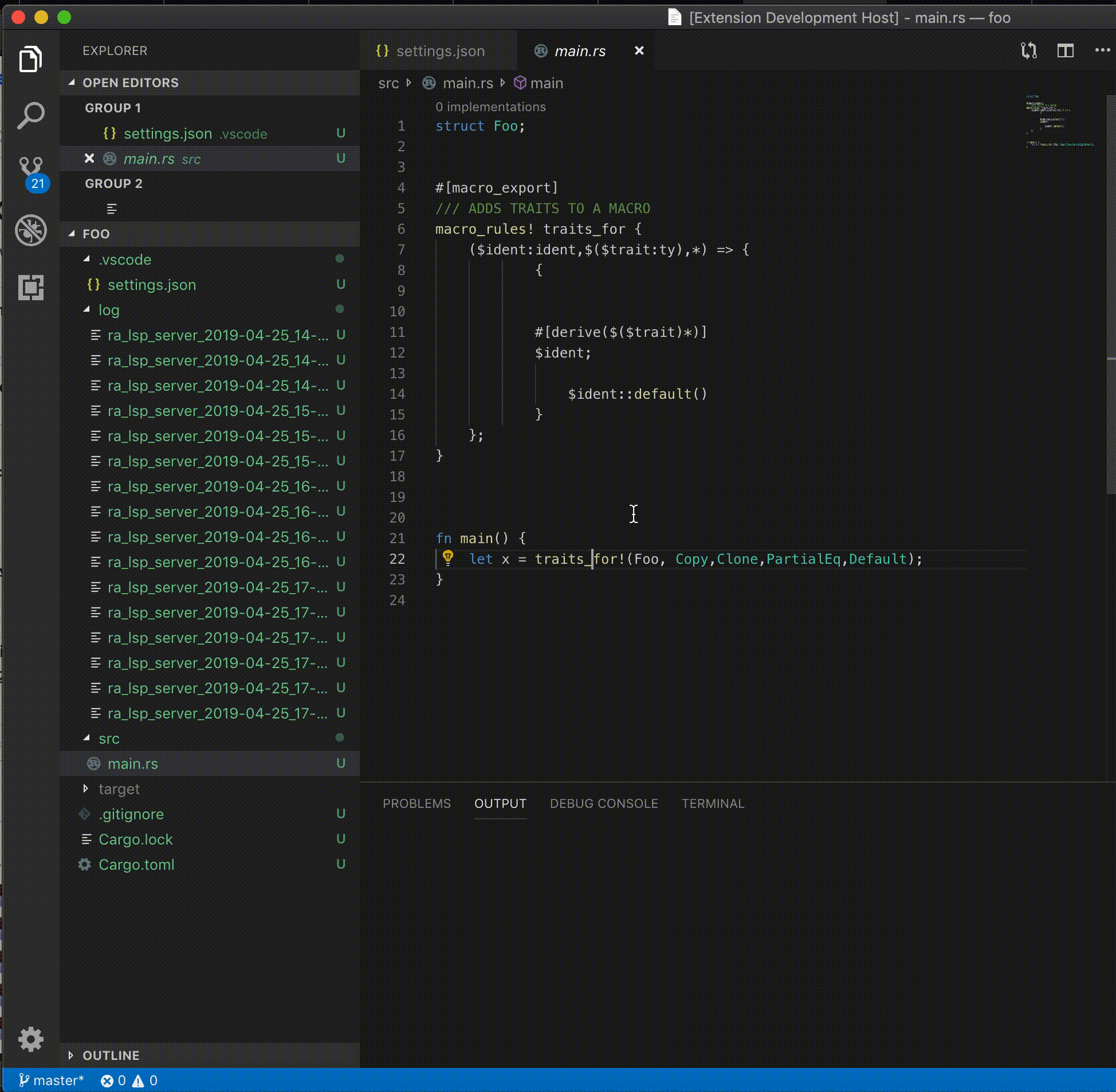For Send/Sync/Sized, we don't handle auto traits correctly yet and because they
have a lot of impls, they can easily lead to slowdowns. In the case of
Fn/FnMut/FnOnce, we don't parse the special Fn notation correctly yet and don't
handle closures yet, so we are very unlikely to find an impl.
This is slightly hacky, but maybe more elegant than alternative solutions: We
just use a hardcoded Chalk trait ID which we special-case to have no impls.
1251: Chalk integration improvements r=matklad a=flodiebold
A few improvements that came up while working on where clause support:
- turn `implements` into a query again to improve performance
- allow skipping to a specific function with `analysis-stats`, e.g. `ra_cli analysis-stats --only world_symbols`
- deduplicate impls in impls_for_trait -- previously many impls e.g. from std where repeated many times, this should help performance as well...
- add a `HirDisplay` implementation for TraitRef (not used here anywhere, but useful for debugging)
Co-authored-by: Florian Diebold <flodiebold@gmail.com>
1208: [WIP] Goto for Macro's r=matklad a=Lapz
Adds goto definition for macros. Currently only works for macros in the current crate ~~otherwise it panics~~. Proper macro resolution needs to be added for it to resolve macros in other crates.
Todo
- [X] Allow goto from macro calls
- [X] Fix panics
- [x] Add tests

Co-authored-by: Lenard Pratt <l3np27@gmail.com>
1216: Basic Chalk integration r=matklad a=flodiebold
This replaces the ad-hoc `implements` check by Chalk. It doesn't yet any new functionality (e.g. where clauses aren't passed to Chalk yet). The tests that exist actually work, but it needs some refactoring, currently crashes when running analysis on the RA repo, and depends on rust-lang/chalk#216 which isn't merged yet 😄
The main work here is converting stuff back and forth and providing Chalk with the information it needs, and the canonicalization logic. Since canonicalization depends a lot on the inference table, I don't think we can currently reuse the logic from Chalk, so we need to implement it ourselves; it's not actually that complicated anyway ;) I realized that we need a `Ty::Bound` variant separate from `Ty::Param` -- these are two different things, and I think type parameters inside a function actually need to be represented in Chalk as `Placeholder` types.
~~Currently this crashes in the 'real' world because we don't yet do canonicalization when filtering method candidates. Proper canonicalization needs the inference table (to collapse different inference variables that have already been unified), but we need to be able to call the method candidate selection from the completion code... So I'm currently thinking how to best handle that 😄~~
Co-authored-by: Florian Diebold <flodiebold@gmail.com>
1238: Macro queries r=edwin0cheng a=matklad
In https://github.com/rust-analyzer/rust-analyzer/pull/1231, I've added aggressive clean up of `ast_id_to_node` query.
The result of this query is a `SyntaxTree`, and we don't want to retain syntax trees in memory unless absolutely necessary.
Moreover, `SyntaxTree` has identity equality semantics, meaning that we'll get a diffferent syntax tree for a file after every reparse. That means that `ast_id_to_node` query should not genereally be used in HIR, unless it is behind some kind of salsa firewall, like the `raw` module of name resoulution.
However, that PR resulted in the abysmal performance: turns out we were using ast_id_to_node quite heavily in hir when expanding macros!
So this PR installs the more incremental-friendly query structure:
* converting source to token tree is now a query; changing source without affecting token-trees will now preserve macro expansions
* expand macro (tt -> tt) is now a query as well, so we cache macro expansions *before* parsing them into item lists or expressions, which is nice: we can cache expansion without knowing the calling context!
r? @edwin0cheng
Co-authored-by: Aleksey Kladov <aleksey.kladov@gmail.com>